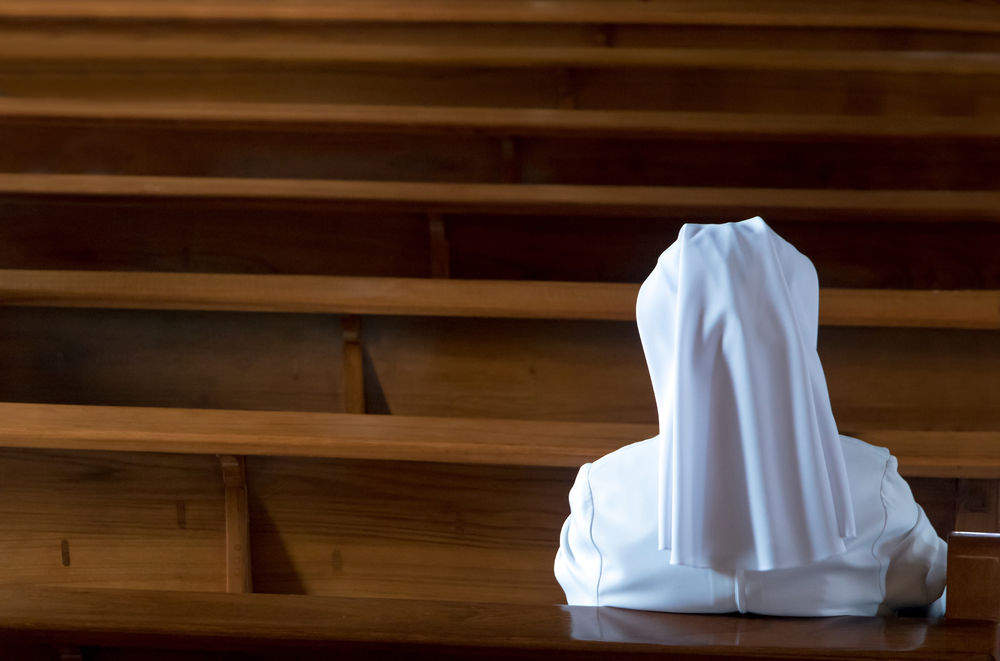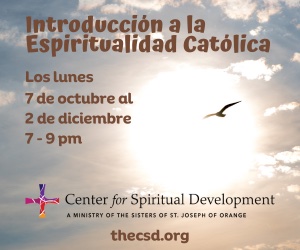The power of a subordinate clause, one nuance within a sentence and everything takes on a different meaning.
That’s the case in a recent brilliant, but provocative, novel, “The Ninth Hour,” by Nina McDermott. She tells a story which, among other things, focuses on a group of nuns in Brooklyn who work with the poor.
Times are hard, people are needy and the nuns, who work mostly in home care for the poor, appear utterly selfless in their dedication. Nothing, it seems, can deflect them from their mission to give their all, their every ounce of energy, to help the poor.
And on this score, McDermott gives them their due. As well, for anyone familiar with what goes on inside of a religious community, McDermott’s portrayal of these nuns is both nuanced and accurate. Nuns aren’t all of a kind. Each has her own unique history, temperament and personality.
Some are wonderfully warm and gracious, others nurse their own wounds and aren’t always evident paradigms of God’s love and mercy.
And that’s the case with the nuns that McDermott describes here. But, quirks of individual personality aside, as a community the nuns she describes serve the poor and their overall witness is beyond reproach.
But then, after telling this story of faith and dedication and reflecting on how today there are few groups of nuns who still live so radical a commitment, McDermott, through the voice of her narrator, introduces the subversive subordinate clause: “The holy nuns who sailed through the house when we were young were a dying breed even then. … The call to sanctity and self-sacrifice, the delusion and superstition it required, faded from the world even then.”
Wow! The “delusion and superstition it required.” As if this kind of radical self-sacrifice can only be the product of false fear. As if whole generations of Christian self-sacrifice, vowed celibacy and single-minded dedication can be dismissed, post-factum, as ultimately predicated on delusion and superstition.
How true is that?
I grew up in the world McDermott is describing, where nuns were like that, and where a powerful Catholic ethos supported them and declared what they were doing was anything but delusion and superstition.
Admittedly, that was another time and much of that ethos has not stood the test of time and has, indeed, to a large part succumbed to the raw power of secularity. And so McDermott is right, partially. Some of that selflessness was based upon an unhealthy fear of hellfire and God’s anger.
To an extent, too, it was based on a notion of faith that believed that God does not really want us to flourish much here on earth, but that our lives are meant to be mostly a somber preparation for the next world.
Perhaps this isn’t exactly delusion and superstition, but it is bad theology and it did help underwrite some of the religious life in the world McDermott describes and in the Catholic world of my youth.
But there was also something else undergirding this ethos, and I inhaled it deeply in my youth and in a way that branded my soul for good, like nothing else I have ever breathed in this world.
Notwithstanding some false fears, there was inside of that a biblical faith, a raw mandate, that taught that your own comfort, your own desires and even your own legitimate longings for human flourishing, sexuality, marriage, children, freedom and having what everyone else has, are subject to a higher purpose, and you may be asked to sacrifice them all, your legitimate longings, to serve God and others. It was a faith that believed you were born with a God-given vocation and that your life was not your own.
I saw this first in my own parents, who believed that faith made those demands upon them, who accepted that, and who consequently had the moral authority to ask this of others.
I saw it, too, in the Ursuline Nuns who taught me in school, women with full, red blood flowing through their veins but who sacrificed these longings to come into the public schools in our remote rural areas and teach us. I saw it, too, in the little prairie community that nurtured me in my youth, a whole community that, by and large, lived out this selflessness.
Today I live in a world that prizes sophistication above all else, but where as a whole society we’re no longer sure what’s “fake news” as opposed to what we can believe in and trust.
In this unsteady world the faith of my youth, of my parents, of the nuns who sacrificed their dreams to teach me and of the nuns whom McDermott describes in “The Ninth Hour,” can look very much like delusion and superstition.
Sometimes it is delusion, admittedly; but sometimes it isn’t, and in my case the faith my parents gave me, with its belief that your life and your sexuality are not your own, is, I believe, the truest, most nonsuperstitious thing of all.
Interested in more? Subscribe to Angelus News to get daily articles sent to your inbox.
Oblate of Mary Immaculate Father Ronald Rolheiser is a specialist in the field of spirituality and systematic theology. His website is www.ronrolheiser.com.

